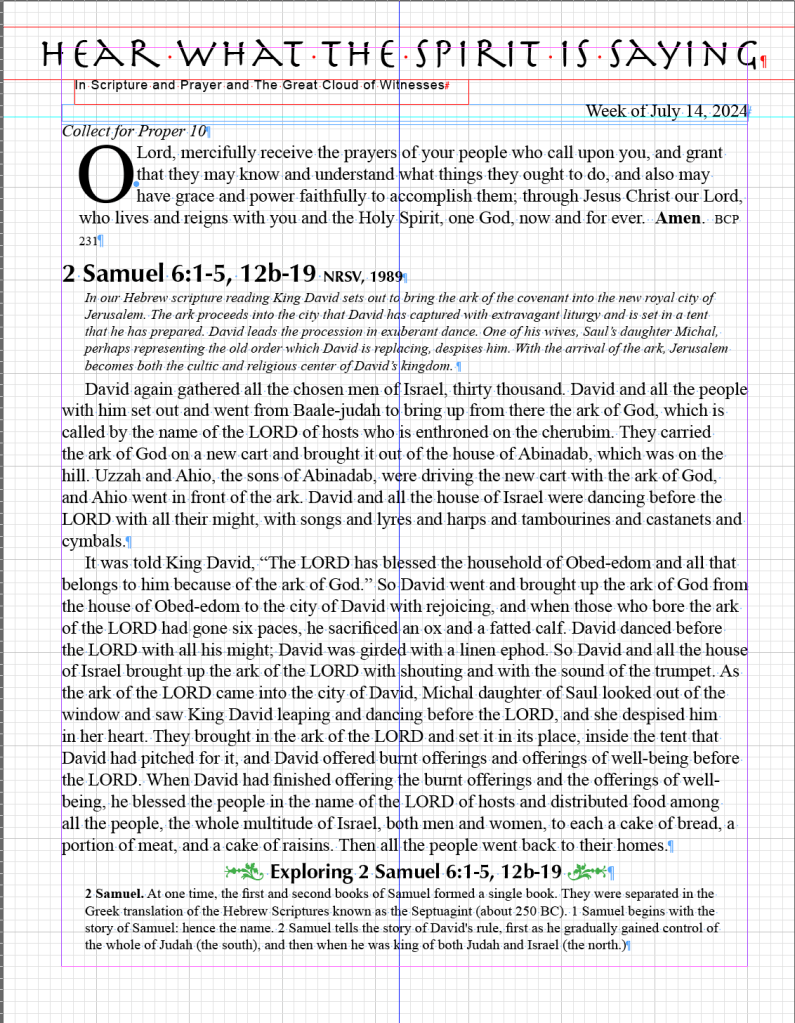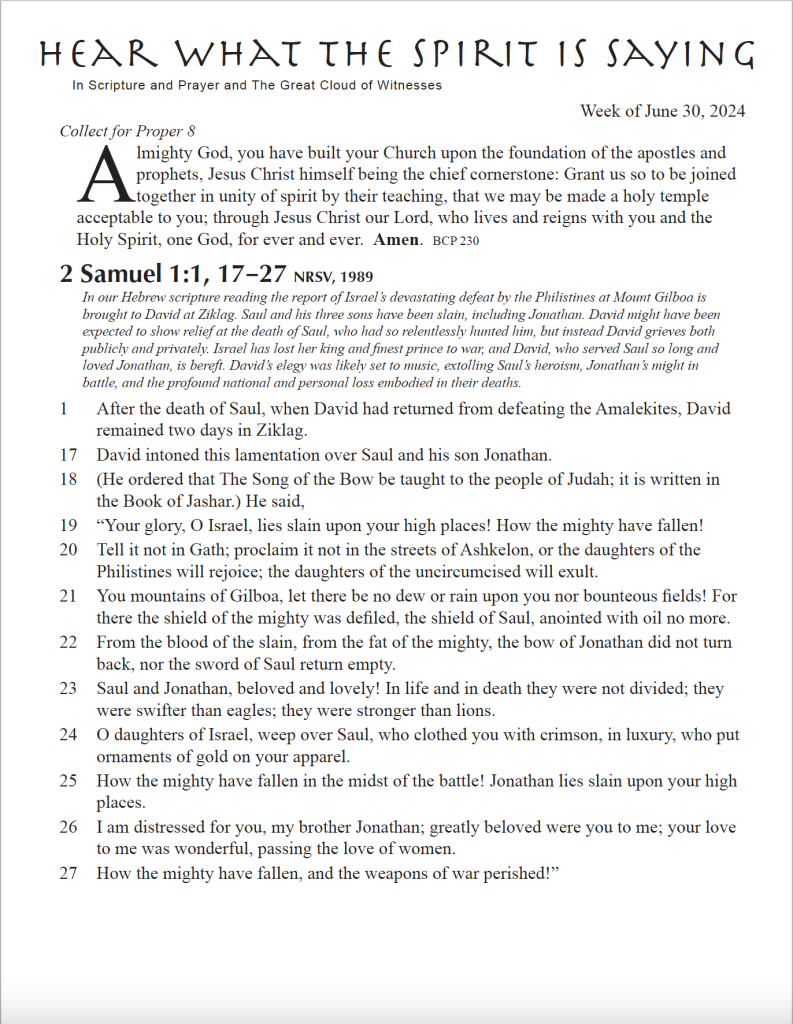But if I go East—He is not there;
West—I still do not perceive Him;
North—since He is concealed, I do not behold Him;
South—He is hidden, and I cannot see Him. —Job 23:8-9
Through the rest of this week we’ll wonder, with Job, where is God? Where is God in the midst of enormous challenges facing his creation and his ‘children’ throughout creation—even those we consider our ‘enemies’? And where is God in the challenges we face? ~dan
Listen to the wind in the chimes for a while. What do you hear?
Prayer words from the Psalms …
The psalmists know how to plead, lament, complain, express anger AND how to move from those places to places of trust. We used this Psalm in our midweek worship at St. Margaret’s on 10/17/12:
1 I love the Lord, because he has heard the voice of my supplication, * because he has inclined his ear to me whenever I called upon him.
2 The cords of death entangled me; the grip of the grave took hold of me; * I came to grief and sorrow.
3 Then I called upon the Name of the Lord: * “O Lord, I pray you, save my life.”
4 Gracious is the Lord and righteous; * our God is full of compassion.
5 The Lord watches over the innocent; * I was brought very low, and he helped me.
6 Turn again to your rest, O my soul, * for the Lord has treated you well.
7 For you have rescued my life from death, * my eyes from tears, and my feet from stumbling.
8 I will walk in the presence of the Lord * in the land of the living.
Psalm 116:1-8 on p. 759 of The Book of Common Prayer

Prayer words from the Prayer Book
Every Wednesday, after the Eucharist at St. Margaret’s, a group of us meet for a “Spiritual Day Hike.” We (figuratively) hike along trails up to peaks and vistas, through passes wending our way down the hillside into the valleys below, and sometimes we walk along streams in the meadows. The trails are left by our ancestors in the faith: in the Bible, in prayers, in writings, in hymns and songs, and so on. Currently we are exploring the expansive ‘Meadow of the Collects’ (Book of Common Prayer, pp. 211-261). Jean, one of our hikers, shared a prayer she uses daily as she seeks God in the midst of chronic pain and discomfort:
This is another day, O Lord. I know not what it will bring forth, but make me ready, Lord, for whatever it may be. If I am to stand up, help me to stand bravely. If I am to sit still, help me to sit quietly. If I am to lie low, help me to do it patiently. And if I am to do nothing, let me do it gallantly. Make these words more than words, and give me the Spirit of Jesus. Amen.
A prayer “In the Morning” on p. 461 of The Book of Common Prayer

An “Arrow Prayer” (when darkness overwhelms) from the Psalms
Send out your light and your truth, that they may lead me, and bring me to your holy hill and to your dwelling. –Psalm 43:3

“Arrow Prayer” is a term used to describe a prayer which is offered quickly in the moment. Prayers of thanksgiving often come in the form of arrow prayers. Arrow prayers are also helpful in times of distress. “Help me, God!” “Holy one, watch over me.” “Walk with me Jesus, for I am afraid.” These arrow prayers are also prayers of praise and thanksgiving for they recognize God’s on-going presence in daily life.
From a paper written by Jane E. Vennard: Exploring a Life of Prayer











